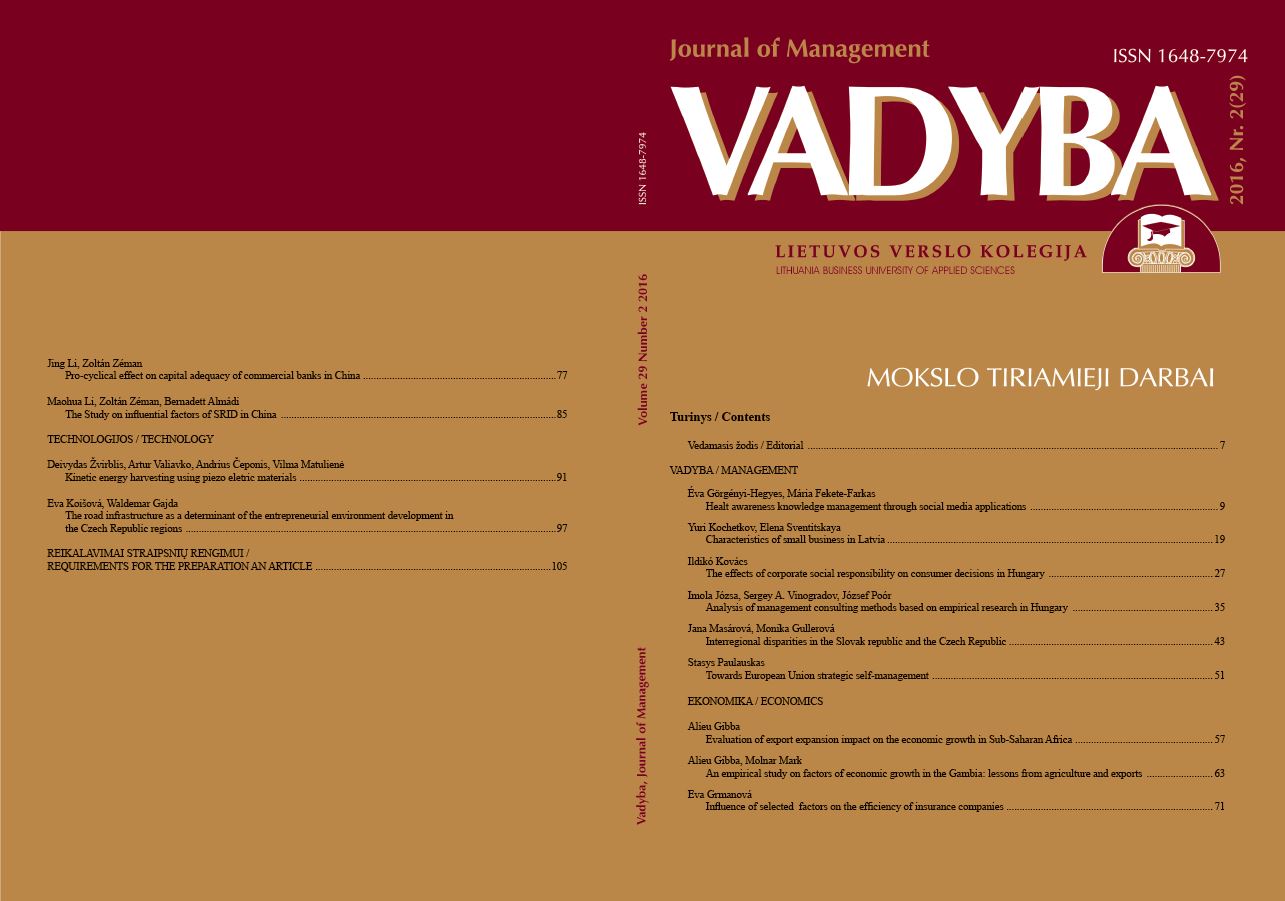ANALYSIS OF MANAGEMENT CONSULTING METHODS BASED ON EMPIRICAL RESEARCH IN HUNGARY
ANALYSIS OF MANAGEMENT CONSULTING METHODS BASED ON EMPIRICAL RESEARCH IN HUNGARY
Author(s): Imola Józsa, Sergey A. Vinogradov, József PoórSubject(s): Social Sciences, Economy, Evaluation research, Economic development, Human Resources in Economy, Business Ethics, Socio-Economic Research
Published by: Lietuvos verslo kolegija
Keywords: Consulting; Management Consulting; Human Resources; Process consultant; Inquiry consultant; Advisory consultant;
Summary/Abstract: This publication tries to analyze the consulting methods and provides insights into a specific area and practice of the consulting work as well. The authors analyze characteristics of three typical ways of consulting processes, such as: Process consulting, Advisory consulting and Inquiry consulting. We can say that before the political changes at the end of the 1980’s, in most Central and Eastern-European (CEE) countries, consulting service was rendered by sector research institutes controlled by the state or by different ministries. Consulting approaches in these countries were predominant similar to the school of scientific management. Consulting hardly existed at that time. Since changes in the regime’s consulting linked to privatization, firm restructuring and development has been developing significantly in all countries. Consulting has become a significant development tool in this region (Poór, Gross, 2003). This topic should be mentioned, since we know and feel that consulting tasks play very important and increasing role in life of companies!In each segment, the consulting tasks have already been required by effects caused by accelerating processes, changing internal and external conditions.The market of consultancy is subject to an ever-increasing interest, both among consultants and the boarder professional public as well. The focus is often towards the size of the consultancy market, about which we have contradicting information, as different analysts describe differently the activities belonging under the “roof” of management consultancy (Kipping, Clarck, 2012). This study consists of two main parts. In first part the authors give an overview on literature of fields of consultancy and on typical consultant methods. In second part, analysis based on the results of the survey of management consulting methodology will be presented.Today we can say that all three typical ways of consulting processes: Advisory consulting, Process consulting, and Inquiry consulting, may be the key factors for success for effectiveness of companies (Brooks, Edwards, 2014) It must be clear that management consulting has been changed during decades. This change has been very disruptive after global economic and financial crisis.
Journal: VADYBA
- Issue Year: 29/2016
- Issue No: 2
- Page Range: 35-41
- Page Count: 7
- Language: English

